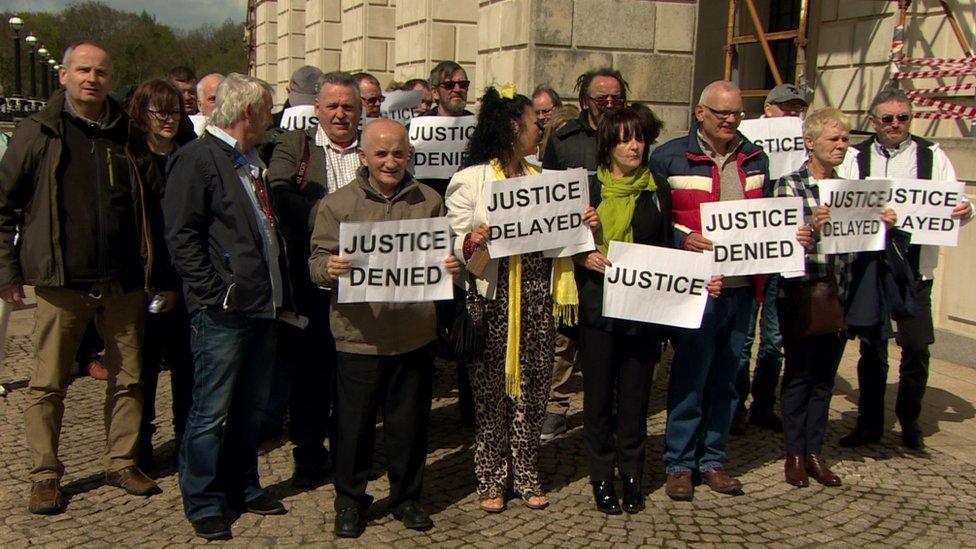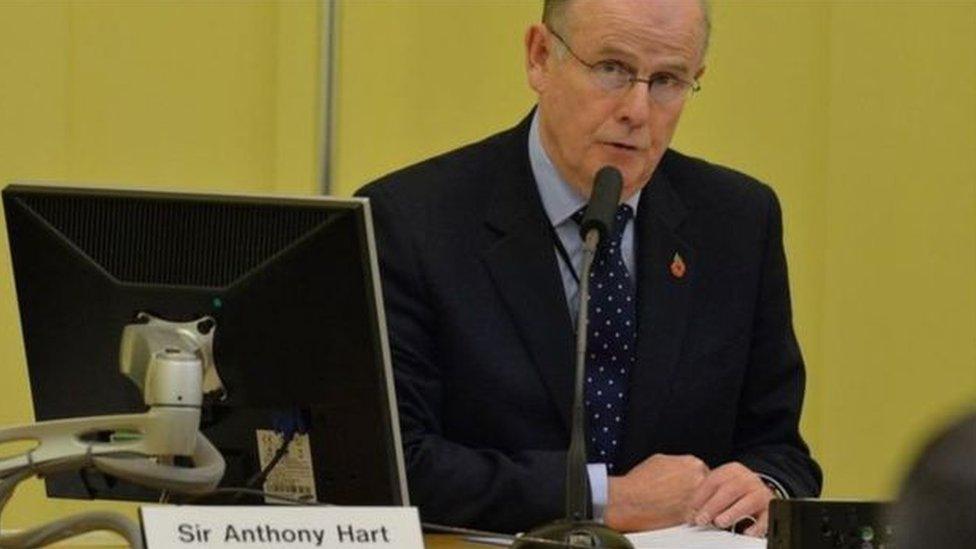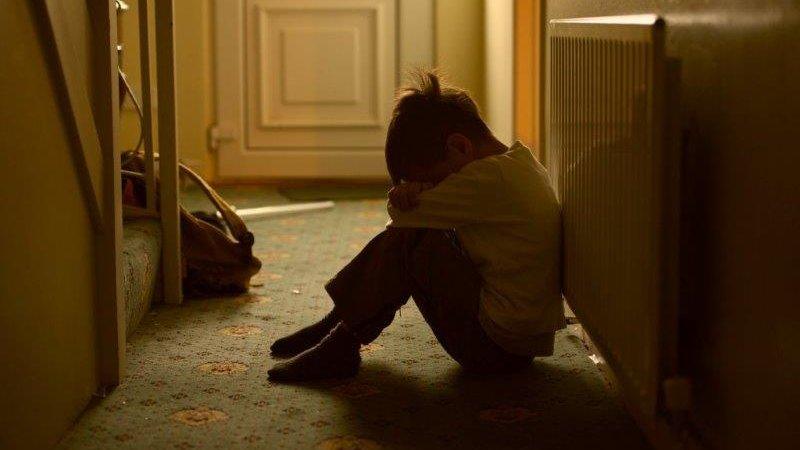HIA Inquiry: Government bill aims to compensate abuse victims
- Published

Campaigners have been calling for compensation to be implemented since early 2017
The government has committed to setting up a redress board to compensate victims of historical institutional abuse in Northern Ireland.
It also aims to create a statutory commissioner to advocate for survivors of institutional childhood abuse.
The moves were included in a new bill outlined in the Queen's Speech at Westminster on Monday.
Victims have lobbied for compensation since the Historical Institutional Abuse Inquiry (HIA) ended in 2017.

On life support
Analysis by BBC NI political correspondent Enda McClafferty
On the surface this is just what victims of historical abuse wanted to hear - Westminster stepping into fill the void at Stormont.
The problem is, the Conservative government at Westminster is on life support.
With no majority, the Queen's Speech may be rejected by MPs.
A general election is also on the horizon.
So while the HIA victims will see this as a first step, it may be some time before we get a second step.

The inquiry, chaired by the late Sir Anthony Hart, investigated historical allegations of child abuse in residential institutions run by religious, charitable and state organisations.
It examined 22 institutions and its remit covered a 73-year period ranging from 1995 back to the foundation of Northern Ireland.
The HIA Inquiry's final report in January 2017 recommended that all survivors of institutional abuse receive tax-free, lump sum payments ranging from £7,500 to £100,000.

Sir Anthony Hart died before his recommendations were acted upon
However, it was published just a few days after the collapse of Northern Ireland's devolved government, and no ministers were in post to set up the redress scheme.
In the absence of devolution, victims and survivors have lobbied successive secretaries of state to implement Sir Anthony's recommendations.

Sir Anthony Hart's 2017 recommendations
Compensation to survivors of abuse, including in homes/institutions not covered by HIA inquiry and relatives of deceased
Permanent memorial erected at Stormont
Public apology to survivors
Establishment of a commissioner for survivors of institutional abuse
Specialist care and assistance tailored to needs of victims

The new Historical Institutional Abuse (Northern Ireland) Bill was outlined at Westminster on Monday.
It says the redress board will be made up of judicial and lay members who will determine applications for compensation made by victims and survivors of abuse.
It also sets out the role of a new commissioner who will act as an advocate for those subject to abuse and "ensuring the co-ordination and availability of services to victims and survivors".
In July, former Northern Ireland victims' commissioner Brendan McAllister was appointed as interim advocate for victims and survivors of historical institutional abuse.
At the time, head of the civil service, David Sterling, said Mr McAllister, external would operate until the appointment of a statutory commissioner for victims and survivors of historical institutional childhood abuse.

Brendan McAllister supported victims of the Troubles in his former role
The new bill says the UK government is acting on the request of Mr Sterling and Northern Ireland's political parties.
It adds the proposed legislation is being brought forward because "victims have waited almost three years since the Hart Inquiry made its recommendations".
The news has been welcomed by Northern Ireland Secretary Julian Smith who had promised HIA victims he would progress the legislation with "urgent priority".
Marty Adams, from the victims' group Survivors Together, said they were delighted the secretary of state had lived up to his word.
- Published5 September 2019

- Published23 August 2019

- Published20 January 2017
